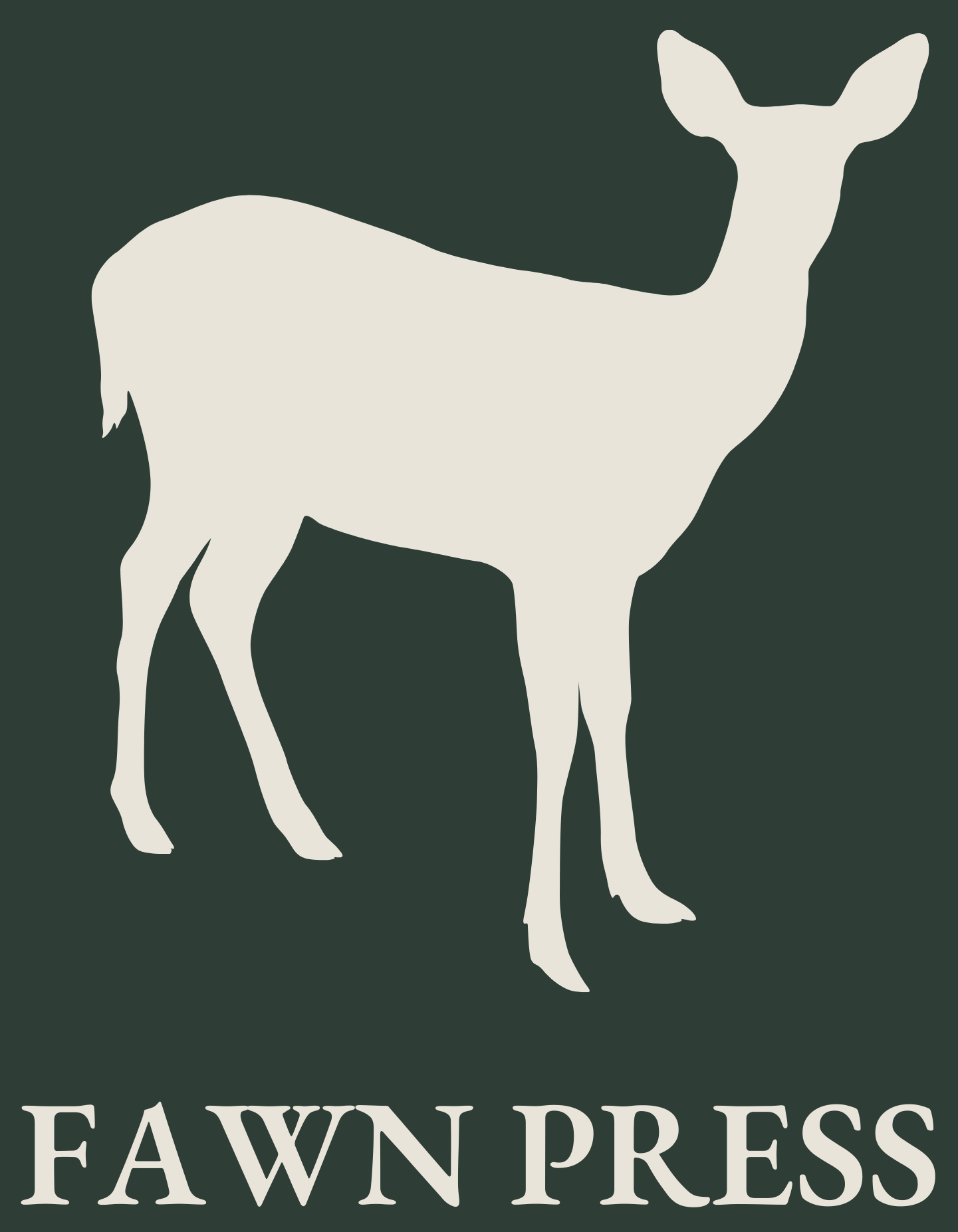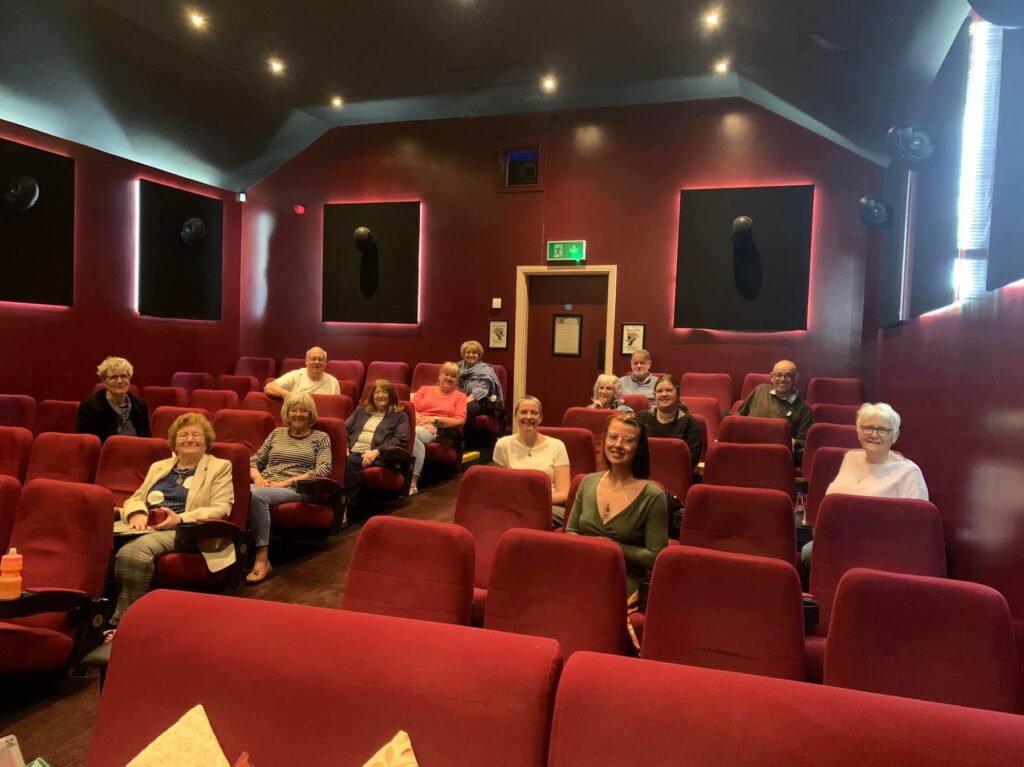It was an absolute pleasure to speak to the ‘Red Carpet Writers’ of Barton Marina on Tuesday 10th May. I gave a short talk on the process of publishing, and we discussed submission windows, self-publishing, and how we know when a poem is ‘finished’.
I think that it’s important for publishers to think about how we can access areas and writers who we may not be able to reach using traditional methods such as social media. It was a real joy to hear about the amazing work that is being produced here, and the connections that are being made between the writers!
It was utterly thrilling to visit such a unique venue by the side of the marina, the vintage-themed cinema only a stone’s throw from moored tug boats and canal boats. It was immediately obvious how special this space was to the members of the ‘Red Carpet Writers’ and so we caught up with Sarah Battams, workshop facilitator and leader of the sessions to find out more about what makes this writing group so special, and about the importance of spaces such as this.
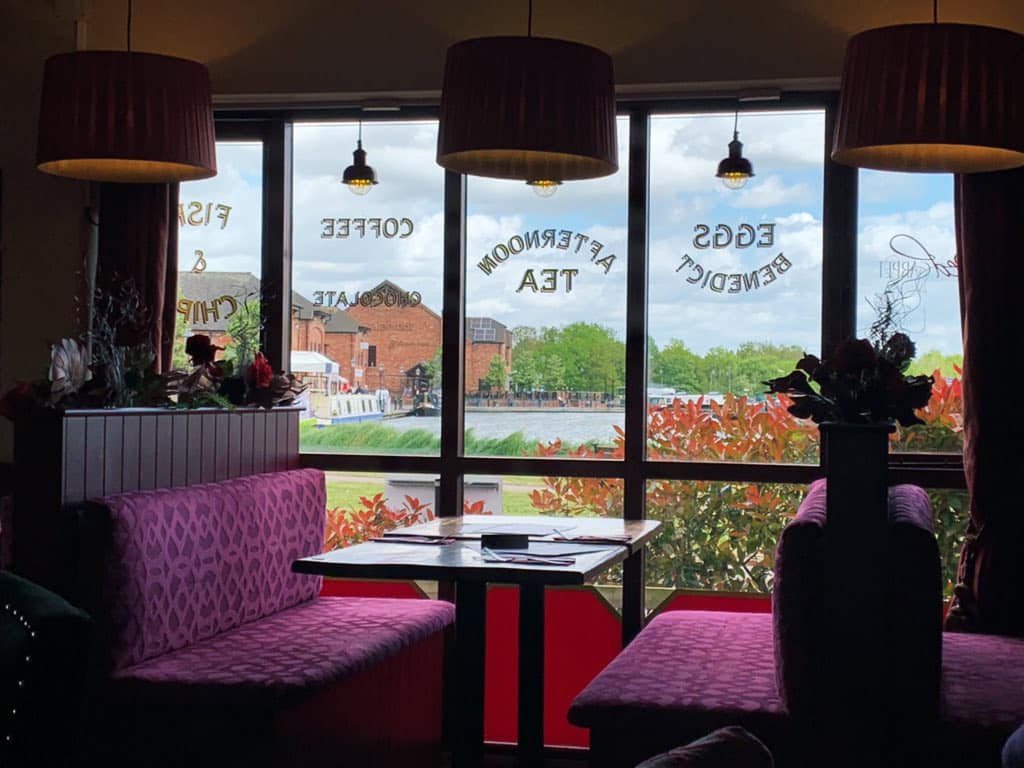
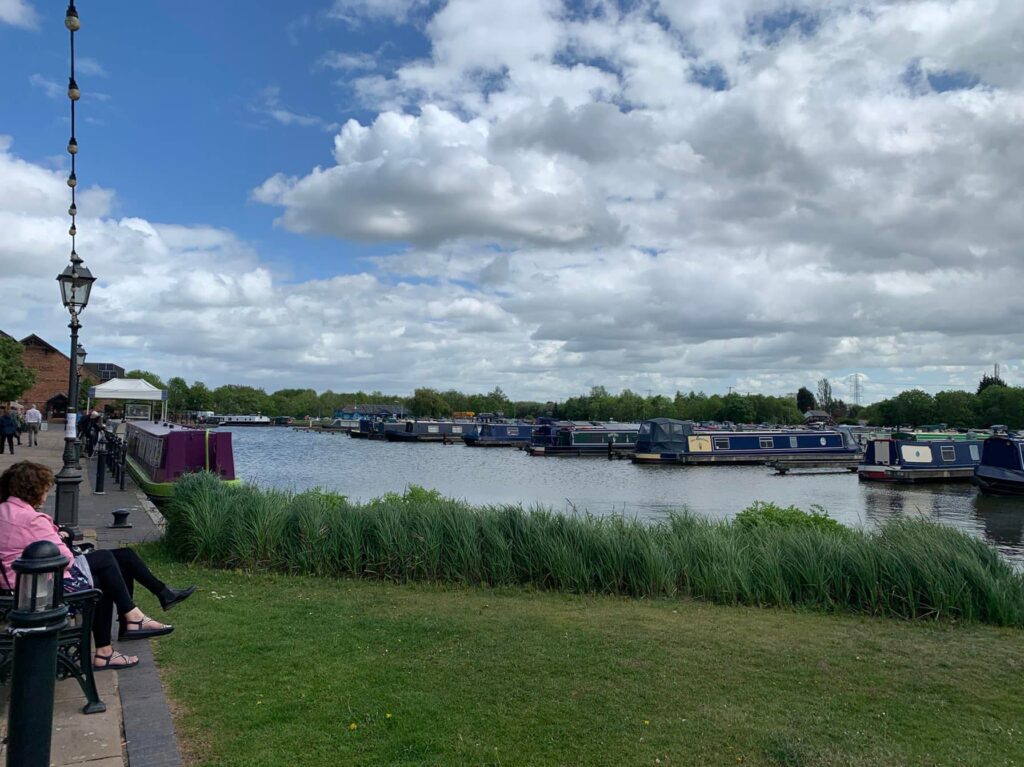
Interview with Sarah Battams; workshop facilitator and tutor.
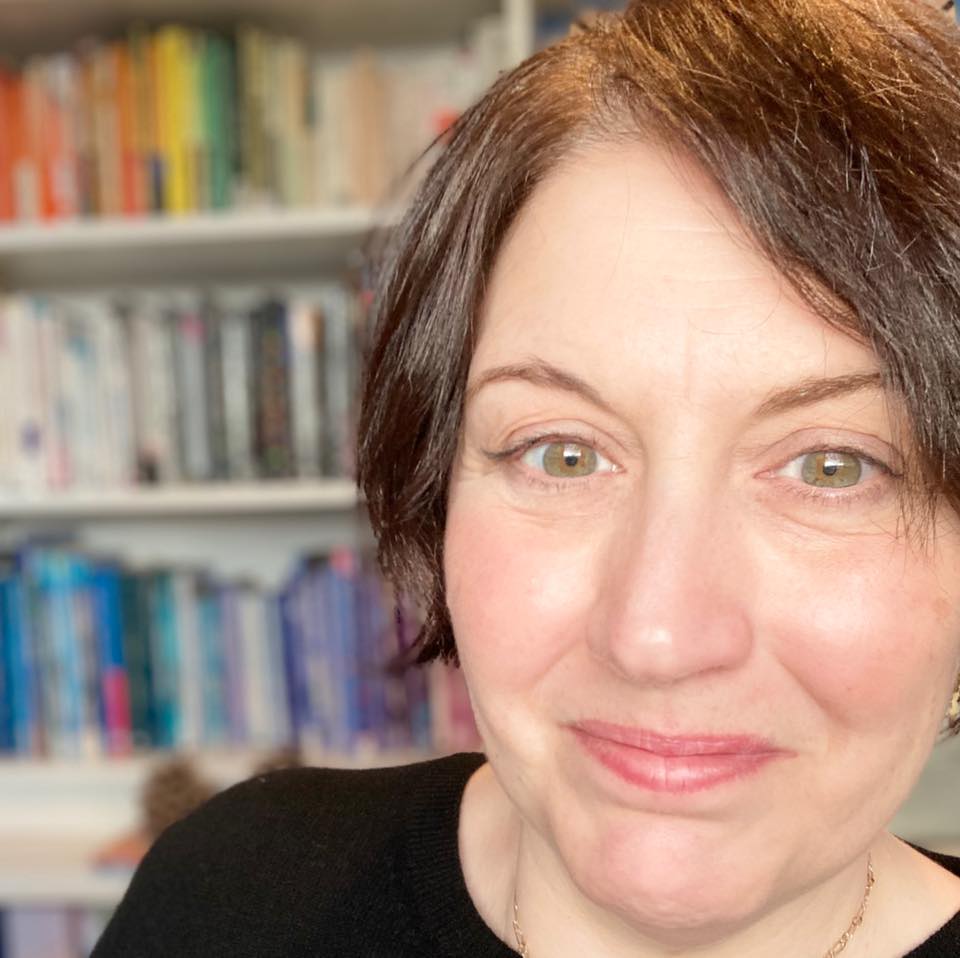
What is the name of the group and what is the place of meeting?
The Red Carpet Writers. We meet every Tuesday morning during term time at the Red Carpet Cinema at Barton Marina. Our meeting room is actually one of the cinemas, which is a lovely private space. We currently have a limit of 16 members in the group which means that everybody can get involved in the discussion.
What is the meeting structured like? What can one expect from a session?
We start every session with a free writing exercise to get the group ‘warmed up’ for the lesson and then we discuss the homework I set the week before. I alternate between setting a writing task on a particular theme or style, or a reading task, such as reading a short story or some poetry.
If I’ve set a writing task, the group will share what they’ve written. Listening to other people’s writing is a real privilege and joy. It always amazes me how different the group’s pieces are even when responding to exactly the same task!
If the homework was a reading task, we’ll discuss what we thought about the piece and comment on the effects of the writer’s language choices or structure, and how we can use those elements in our own writing. We read a lot of poetry because poems are complete texts and they always lead to plenty of discussion.
I might then do some input on a particular aspect of writing such as narrative structure or metre, or we’ll do an in-class writing task using a photograph, piece of music or an object as a stimulus. I like to vary the class to keep it interesting. Indeed, from time to time, we’ll look at a particular poetic form and have a go at writing in that way. We’ve tried Petrarchan sonnets, pantoums, sestinas, villanelles…with varying degrees of success, but a lot of enjoyment! Usually, however, members have the choice to write in whichever genre they prefer – whether that’s poetry, short stories or non-fiction. The most important thing is that the writers get to know themselves as writers and develop a personal voice.
Do you think it has been useful to the writers’ development to meet regularly?
Absolutely. The group have developed strong bonds and are very supportive of one another. It’s a very warm, welcoming group with a mixture of people who have been coming to the group for years and others who are brand new.
I think many people find it difficult to find the time to write; there are always so many other demands on our time. Attending the group means you have at least two hours a week where you can just talk and think about writing with like-minded people.
How important is it do you think that writers receive encouragement and constructive feedback?
The group is very positive with one another and I think that that is so important to build confidence and help you find your voice. To share your writing is to share something very intimate about yourself, so I discourage negativity – whether that’s about your own writing or other people’s.
My role is to ask questions and to encourage the writers to think about why they’ve made certain choices in their writing. I think this is one way you can work out what it is that you want to write and how you want to write it.
